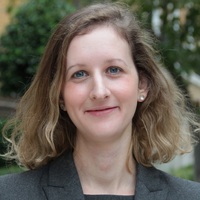
Heidi Tworek
Dr. Heidi Tworek is assistant professor of international history at the University of British Columbia, Vancouver, Canada. She works on media, international organizations, and transatlantic relations. She is a member of the Science and Technology Studies program, the Language Science Initiative, and the Institute for European Studies at UBC. She is a visiting fellow at the Joint Center for History and Economics at Harvard University as well as a non-resident fellow at the German Marshall Fund of the United States and the Canadian Global Affairs Institute.
Heidi's book, News from Germany: The Competition to Control World Communications, 1900-1945 was published in 2019 by Harvard University Press. In March 2018, she published a co-edited volume, entitled Exorbitant Expectations: International Organizations and the Media in the Nineteenth and Twentieth Centuries. Heidi's many book chapters and journal articles have appeared in venues including Journal of Global History, Journal of Policy History, Business History Review, Journalism Studies, German History and Enterprise & Society. She is also the co-editor of The Routledge Companion to the Makers of Global Business, due to appear in fall 2019. She manages the United Nations History Project website to provide materials for researching and teaching the history of international organizations. Her further research interests include contemporary media and communications, German and transatlantic politics, the digital economy, the history of technology, legal history, digital history, the history of health, and higher education.
Heidi is committed to bringing a historical sensibility to policy discussions. She has briefed or advised officials and policymakers from multiple European and North American governments on media, democracy, and the digital economy.
Her writing has been published in English and German in major magazines and newspapers, including Foreign Affairs, Washington Post, The Atlantic, Politico, The Globe and Mail, Columbia Journalism Review, War on the Rocks, Wired, Nieman Journalism Lab, Frankfurter Allgemeine Zeitung, Süddeutsche Zeitung, Der Tagesspiegel, ZEIT, Internationale Politik, and The Conversation. Heidi also appears regularly on national radio and television in the United States, Canada, the United Kingdom, and Germany.
She received her BA (Hons) in Modern and Medieval Languages with a double first from Cambridge University and earned her MA and PhD in History from Harvard University. Her dissertation received the Herman E. Krooss Prize for best dissertation in business history. She previously held the position of Assistant Director of Undergraduate Studies and Lecturer on History in the History Department at Harvard University. Heidi has held visiting fellowships at the Transatlantic Academy in Washington DC, Birkbeck, University of London and the Centre for Contemporary History, Potsdam, Germany. She is a term member of the Council on Foreign Relations.
Please visit my personal website (www.heiditworek.com) to download papers not available here.
Heidi's book, News from Germany: The Competition to Control World Communications, 1900-1945 was published in 2019 by Harvard University Press. In March 2018, she published a co-edited volume, entitled Exorbitant Expectations: International Organizations and the Media in the Nineteenth and Twentieth Centuries. Heidi's many book chapters and journal articles have appeared in venues including Journal of Global History, Journal of Policy History, Business History Review, Journalism Studies, German History and Enterprise & Society. She is also the co-editor of The Routledge Companion to the Makers of Global Business, due to appear in fall 2019. She manages the United Nations History Project website to provide materials for researching and teaching the history of international organizations. Her further research interests include contemporary media and communications, German and transatlantic politics, the digital economy, the history of technology, legal history, digital history, the history of health, and higher education.
Heidi is committed to bringing a historical sensibility to policy discussions. She has briefed or advised officials and policymakers from multiple European and North American governments on media, democracy, and the digital economy.
Her writing has been published in English and German in major magazines and newspapers, including Foreign Affairs, Washington Post, The Atlantic, Politico, The Globe and Mail, Columbia Journalism Review, War on the Rocks, Wired, Nieman Journalism Lab, Frankfurter Allgemeine Zeitung, Süddeutsche Zeitung, Der Tagesspiegel, ZEIT, Internationale Politik, and The Conversation. Heidi also appears regularly on national radio and television in the United States, Canada, the United Kingdom, and Germany.
She received her BA (Hons) in Modern and Medieval Languages with a double first from Cambridge University and earned her MA and PhD in History from Harvard University. Her dissertation received the Herman E. Krooss Prize for best dissertation in business history. She previously held the position of Assistant Director of Undergraduate Studies and Lecturer on History in the History Department at Harvard University. Heidi has held visiting fellowships at the Transatlantic Academy in Washington DC, Birkbeck, University of London and the Centre for Contemporary History, Potsdam, Germany. She is a term member of the Council on Foreign Relations.
Please visit my personal website (www.heiditworek.com) to download papers not available here.
less
Related Authors
Stephanie Seul
University of Bremen
Nina Lübbren
Anglia Ruskin University
Elizabeth Bruton
University College Dublin
Alexander Badenoch
Utrecht University
Elisha Corbett
Queen's University at Kingston
Michaela Hoenicke Moore
The University of Iowa
Patrick Bernhard
University of Oslo
Jonathan Wiesen
University of Alabama at Birmingham
Angela E . Zimmerman
The George Washington University
Jonathan Zatlin
Boston University
InterestsView All (36)
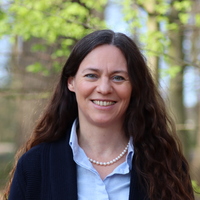
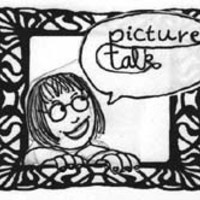
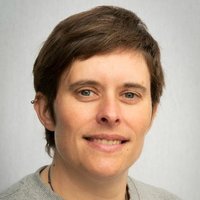


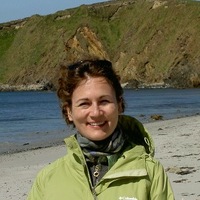
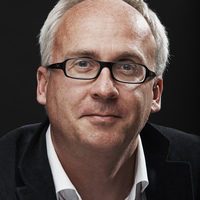



Uploads
Books by Heidi Tworek
Information warfare may seem like a new feature of our contemporary digital world. But it was just as crucial a century ago, when the great powers competed to control and expand their empires. In News from Germany, Heidi Tworek uncovers how Germans fought to regulate information at home and used the innovation of wireless technology to magnify their power abroad.
Tworek reveals how for nearly fifty years, across three different political regimes, Germany tried to control world communications—and nearly succeeded. From the turn of the twentieth century, German political and business elites worried that their British and French rivals dominated global news networks. Many Germans even blamed foreign media for Germany’s defeat in World War I. The key to the British and French advantage was their news agencies—companies whose power over the content and distribution of news was arguably greater than that wielded by Google or Facebook today. Communications networks became a crucial battleground for interwar domestic democracy and international influence everywhere from Latin America to East Asia. Imperial leaders, and their Weimar and Nazi successors, nurtured wireless technology to make news from Germany a major source of information across the globe. The Nazi mastery of global propaganda by the 1930s was built on decades of Germany’s obsession with the news.
News from Germany is not a story about Germany alone. It reveals how news became a form of international power and how communications changed the course of history.
The book was a #1 new release in international relations, media studies, and journalism on Amazon.
Journal Articles by Heidi Tworek
press in political and economic life, about the relationship between the federal states and the central government, and about the responsibility of a democratic government to ensure an independent press. Paper became a litmus test for the relationship between politicians and the press. The failure to resolve the crisis not only undermined the trust of publishers in Weimar institutions, but, this article argues, also enabled greater control by right-wing media empires. The public sphere, it turned out, had a very material basis.
Free version of paper available here: https://open.library.ubc.ca/cIRcle/collections/facultyresearchandpublications/52383/items/1.0304567
Link to article: http://journals.cambridge.org/action/displayAbstract?fromPage=online&aid=9792211&fulltextType=RA&fileId=S1740022815000066
Link to article: http://bit.ly/1GSWxtw
From August 2013, a new, controversial ancillary copyright law (Leistungsschutzrecht) permitted German publishers to charge online news aggregator, such as Google for displaying article snippets. Implementation remains contested, but this is not the first time that new technology has prompted Germans to seek intellectual property rights in news. In August 1927, a German delegation successfully pushed through its compromise resolution on the legal protection of news during a Conference of Press Experts at the League of Nations. The resolution foresaw protection for news before publication, but allowed national governments to regulate news after publication. This left space for Germany to promulgate a national law on news that Germans hoped would become a model for others. This article uses the Conference of Press Experts to argue that German approaches to media, technology and law developed from the intersection between national and international concerns. In contrast to other scholars’ focus on the press as a national phenomenon, the article shows that the international spotlight enabled a temporary cooperation between two groups often at odds during the Weimar Republic: the press and government officials. Officials saw law as a form of soft power to raise Germany’s international profile, while the semi-official news agency, Wolff, aimed to counter domestic competition and stop radio listeners eavesdropping on its news. Yet, bureaucrats and the media only cooperated effectively on the international stage. In domestic discussions after the conference, consensus swiftly disintegrated. This interplay between national and international imperatives remains key for media policy today as well as in interwar German history.
Link to article: https://muse-jhu-edu.ezp-prod1.hul.harvard.edu/journals/enterprise_and_society/v015/15.4.tworek.html
Journal Special Issues by Heidi Tworek
become an integral part of processes of technological development, innovation and design.
Papers by Heidi Tworek
Though issues of disinformation are not new, their appearance in new forms of weaponized information and social media call for new best practices within media organizations. This brief suggests some simple solutions to help journalists and editors avoid playing an unintentional role in information warfare and to increase trust in journalism. The recommendations fall into three categories: how to detect disinformation; how to increase literacy about foreign interference; how to anticipate future problems today.
Information warfare may seem like a new feature of our contemporary digital world. But it was just as crucial a century ago, when the great powers competed to control and expand their empires. In News from Germany, Heidi Tworek uncovers how Germans fought to regulate information at home and used the innovation of wireless technology to magnify their power abroad.
Tworek reveals how for nearly fifty years, across three different political regimes, Germany tried to control world communications—and nearly succeeded. From the turn of the twentieth century, German political and business elites worried that their British and French rivals dominated global news networks. Many Germans even blamed foreign media for Germany’s defeat in World War I. The key to the British and French advantage was their news agencies—companies whose power over the content and distribution of news was arguably greater than that wielded by Google or Facebook today. Communications networks became a crucial battleground for interwar domestic democracy and international influence everywhere from Latin America to East Asia. Imperial leaders, and their Weimar and Nazi successors, nurtured wireless technology to make news from Germany a major source of information across the globe. The Nazi mastery of global propaganda by the 1930s was built on decades of Germany’s obsession with the news.
News from Germany is not a story about Germany alone. It reveals how news became a form of international power and how communications changed the course of history.
The book was a #1 new release in international relations, media studies, and journalism on Amazon.
press in political and economic life, about the relationship between the federal states and the central government, and about the responsibility of a democratic government to ensure an independent press. Paper became a litmus test for the relationship between politicians and the press. The failure to resolve the crisis not only undermined the trust of publishers in Weimar institutions, but, this article argues, also enabled greater control by right-wing media empires. The public sphere, it turned out, had a very material basis.
Free version of paper available here: https://open.library.ubc.ca/cIRcle/collections/facultyresearchandpublications/52383/items/1.0304567
Link to article: http://journals.cambridge.org/action/displayAbstract?fromPage=online&aid=9792211&fulltextType=RA&fileId=S1740022815000066
Link to article: http://bit.ly/1GSWxtw
From August 2013, a new, controversial ancillary copyright law (Leistungsschutzrecht) permitted German publishers to charge online news aggregator, such as Google for displaying article snippets. Implementation remains contested, but this is not the first time that new technology has prompted Germans to seek intellectual property rights in news. In August 1927, a German delegation successfully pushed through its compromise resolution on the legal protection of news during a Conference of Press Experts at the League of Nations. The resolution foresaw protection for news before publication, but allowed national governments to regulate news after publication. This left space for Germany to promulgate a national law on news that Germans hoped would become a model for others. This article uses the Conference of Press Experts to argue that German approaches to media, technology and law developed from the intersection between national and international concerns. In contrast to other scholars’ focus on the press as a national phenomenon, the article shows that the international spotlight enabled a temporary cooperation between two groups often at odds during the Weimar Republic: the press and government officials. Officials saw law as a form of soft power to raise Germany’s international profile, while the semi-official news agency, Wolff, aimed to counter domestic competition and stop radio listeners eavesdropping on its news. Yet, bureaucrats and the media only cooperated effectively on the international stage. In domestic discussions after the conference, consensus swiftly disintegrated. This interplay between national and international imperatives remains key for media policy today as well as in interwar German history.
Link to article: https://muse-jhu-edu.ezp-prod1.hul.harvard.edu/journals/enterprise_and_society/v015/15.4.tworek.html
become an integral part of processes of technological development, innovation and design.
Though issues of disinformation are not new, their appearance in new forms of weaponized information and social media call for new best practices within media organizations. This brief suggests some simple solutions to help journalists and editors avoid playing an unintentional role in information warfare and to increase trust in journalism. The recommendations fall into three categories: how to detect disinformation; how to increase literacy about foreign interference; how to anticipate future problems today.
https://zeitschrift-ip.dgap.org/de/ip-archiv/autoren/22145
Rather than seeing sovereignty and globalism as factual descriptions of the world or properties that states either have or lack, we seek to historicize the concepts in question, conceiving of them as claims that historical actors made, challenged, and denied. We invite contributions that analyze the often heated political and intellectual debates about how the principles of globalism or national sovereignty should shape the world. How has the slippery concept of sovereignty been stabilized as it moved between the scales of the individual, the people, the state, the empire, and the earth? How have abstractions with no fixed referents, such as sovereignty and globalism, taken on such power in the political imagination and history of our times? How do they retain political traction with advocates and adversaries who defy separation along the classical fractures of the political spectrum?
Possible themes may include, but are not limited to:
§ The status of sovereignty and globalism in German legal debates
§ Redefinitions of sovereignty in structures of multilevel governance in Europe and beyond
§ International human rights regimes
§ Ordoliberalism and neoliberalism as reflections on sovereignty and globalism
§ German and Austrian roles in globalist projects like the North-South Commission, the Club of Rome and international systems research § German participation in global standard-setting and norm creation
§ Imperial and National Socialist visions of global order
Scholars interested in presenting a paper at the workshop are invited to send a brief abstract of 250-300 words as well as a short CV by June 15, 2018 to Susanne Fabricius (fabricius@ghi-dc.org). Participants will be notified by mid-July and are expected to submit a paper for pre-circulation by February 15, 2019. Travel and accommodation costs will be covered, pending further approval, but we also encourage participants to draw on institutional funding when available.
Venue: European University Institute (EUI), Florence, Italy,
Deadline: 15 September 2015
Conveners: Jonas Brendebach (EUI), Martin Herzer (EUI), Heidi Tworek (Harvard/University of British Columbia)
Keynotes: Iris Schröder, (University of Erfurt), Glenda Sluga (University of Sydney)
International organisations throughout the nineteenth and twentieth centuries are unimaginable without the media. People around the globe learned about international organisations and their activities largely through the media and images created by journalists, publicists, and filmmakers in texts, sound bites, and pictures. In many cases, the very existence and success of international organisations depended on media attention, communication, and publicity.
This conference explores how international organisations were communicated to the public via the media during the nineteenth and twentieth centuries. The conference aims to bring together two burgeoning, yet largely unconnected strands of research: the history of international organisations and media history.
The conference takes a deliberately expansive view of both international organisations and media. International organisations involve institutionalised cooperation in both looser and regional as well as highly institutionalised and global forms. This comprises ‘classic’ intergovernmental organisations such as the United Nations, but also the vast array of NGOs and other international fora. Media refers to newspapers, news agencies, radio, and television, but also to film, cinema, and photography.
The conference proposes four related fields of investigation.
(1) International organisations and the media. Publicity and media visibility played a crucial role for intergovernmental as well as nongovernmental international organisations. The League of Nations, the United Nations, or the European Communities devised public information strategies to attract, direct, or avoid media attention. NGOs drew on the powerful potential of media campaigns to promote the causes of international law, human rights, or environmentalism. What role did different international organisations attribute to various types of media? How did they work on their public image by influencing journalists and media coverage? In which circumstances did national governments and international organisations compete or cooperate in their communication to the media?
(2) The media and international organisations. For the media, international organisations represented new sources of information, new journalistic environments, and new topics to cover. How did individual or collective media actors adapt to the new hubs of internationalism in Geneva, New York, or Brussels? How did they position themselves vis-à-vis the morally charged ideas of liberal internationalism, European unity, or human rights, which functioned as raison d’être for many international organisations? How did they navigate between the dynamics of an international environment and national audiences?
(3) Infrastructures and politics of global media. International organisations became fora for debates on the standardization of transnational communication technologies and global norms of journalism and transborder media activities. What kind of technological and journalistic standards did international organisations promote? How did journalists, media companies, and national governments position themselves towards these standards? How did their cultural, social, and economic backgrounds determine their attitudes towards the social functions of the media, the desirability of international norms, or the relationship between governments and the media?
(4) Imagining a ‘global public sphere’ and transnational publics. The ideas of liberal internationalism were closely related to imaginations of a ‘global public sphere’ and a ‘global consciousness’. Similarly, many supporters of European integration came to see a European public sphere as a precondition for a democratic EU. Moreover, international organisations themselves became incubators for transnational publics in which international civil servants, diplomats, journalists, and interest groups debated international organisations’ activities. How did internationalist ideas of the ‘global public sphere’ evolve over time? What were the characteristics, scope, and durability of transnational publics based upon international organisations?
The conference will take place on 10-12 March 2016 at the European University Institute (EUI), Florence, Italy. Travel and accommodation expenses will be covered. We invite researchers of all stages to submit an abstract of 300 words (including name, paper title, institutional affiliation) and a CV to jonas.brendebach@eui.eu, martin.herzer@eui.eu and heidievans@gmail.com by 15 September 2015.